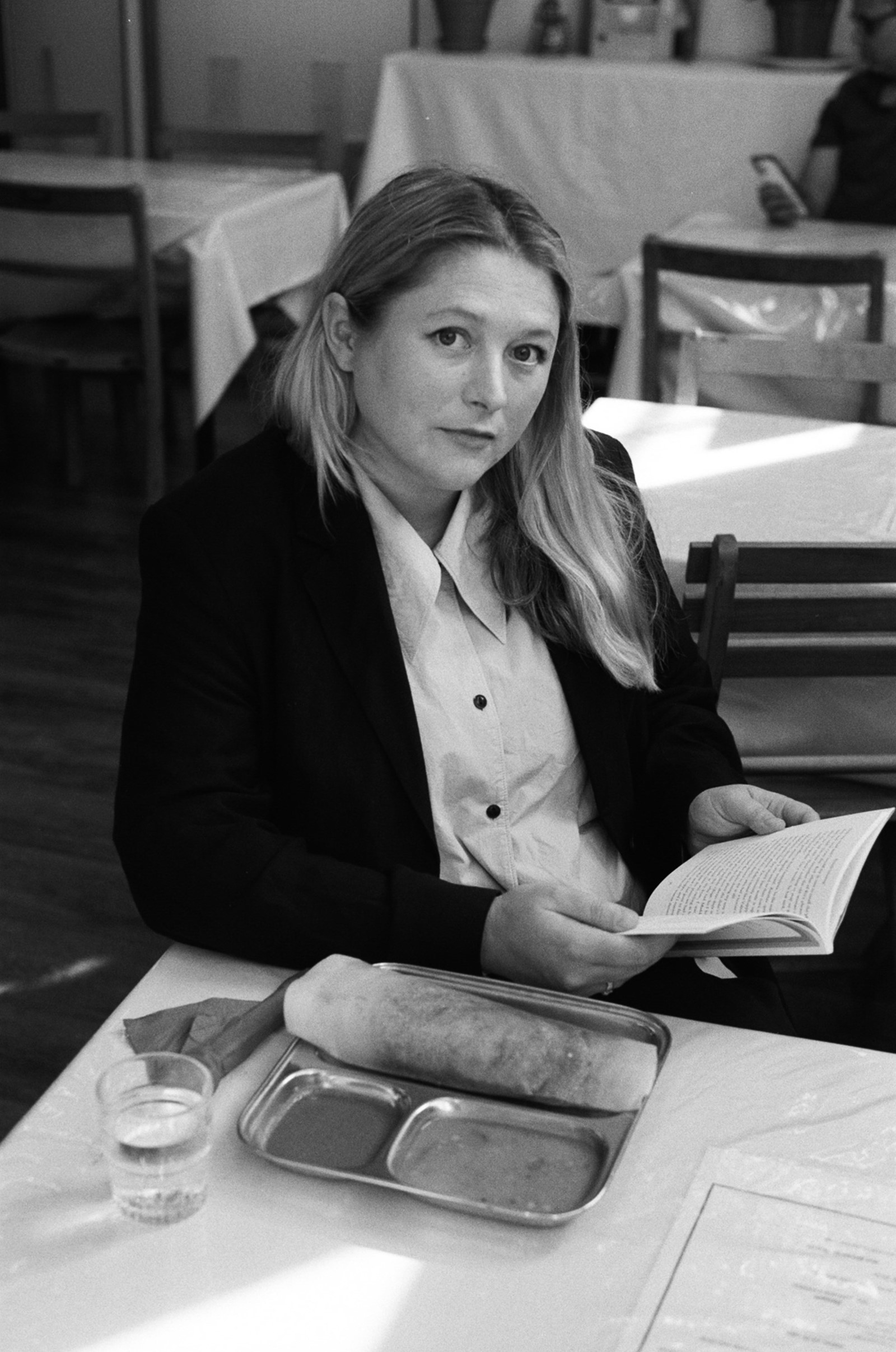This interview is taken from ’The Elements Issue’ of Worms Magazine.
Food features prominently in Rebecca May Johnson’s book Small Fires: An Epic in the Kitchen, although ‘food writing’ is by no means the genre in which it belongs. Released in 2022, Johnson’s explosive debut chronicles her experiences with home cooking over the past ten years, mixing memoir with recipe, gender theory with German poetry, and anti-capitalist critique with feminist thought. Highly experimental in form and content – stylistically, Small Fires lands somewhere in between Maggie Nelson’s The Argonauts and Audre Lorde’s Zami: A New Spelling of My Name (two major influences) – it is a difficult book to place; nothing ever written about food before has been this rich, challenging or visceral.
Taking Marcella Hazan’s tomato sauce – a favourite of the River Cafe’s Ruth Rogers – as one of the book’s central throughlines, Johnson cooks the recipe over a thousand times in a decade, ruminating in the process on gender roles in the kitchen, the collective power of recipes, cooking as labour or love, and what it can mean during periods of poor mental health. Amidst long stretches of memoir, Small Fires is peppered with references to Nigella Lawson, Martha Rosler and Audre Lorde, all of whom challenge the accepted script of what ‘domestic’ cooking means. Instead, they prove that cooking and eating can be political acts; creative forms of resistance to patriarchal, racist, and capitalist structures.
After reading Small Fires, it’s impossible to think of home cooking in the same way again. Instead, when you next find yourself in the kitchen, tying up your apron strings – something Johnson insists is an erotic act – and simmering some tomato sauce on the hob, you’ll be lighting a small fire of your own, and blowing up the kitchen in the process.
Speaking from Harwich, a “crumbling port town” in Essex, where she moved four years ago after leaving London, Rebecca May Johnson talks about the revolutionary potential of the kitchen, being against genre, and what she’s got planned for her next book.
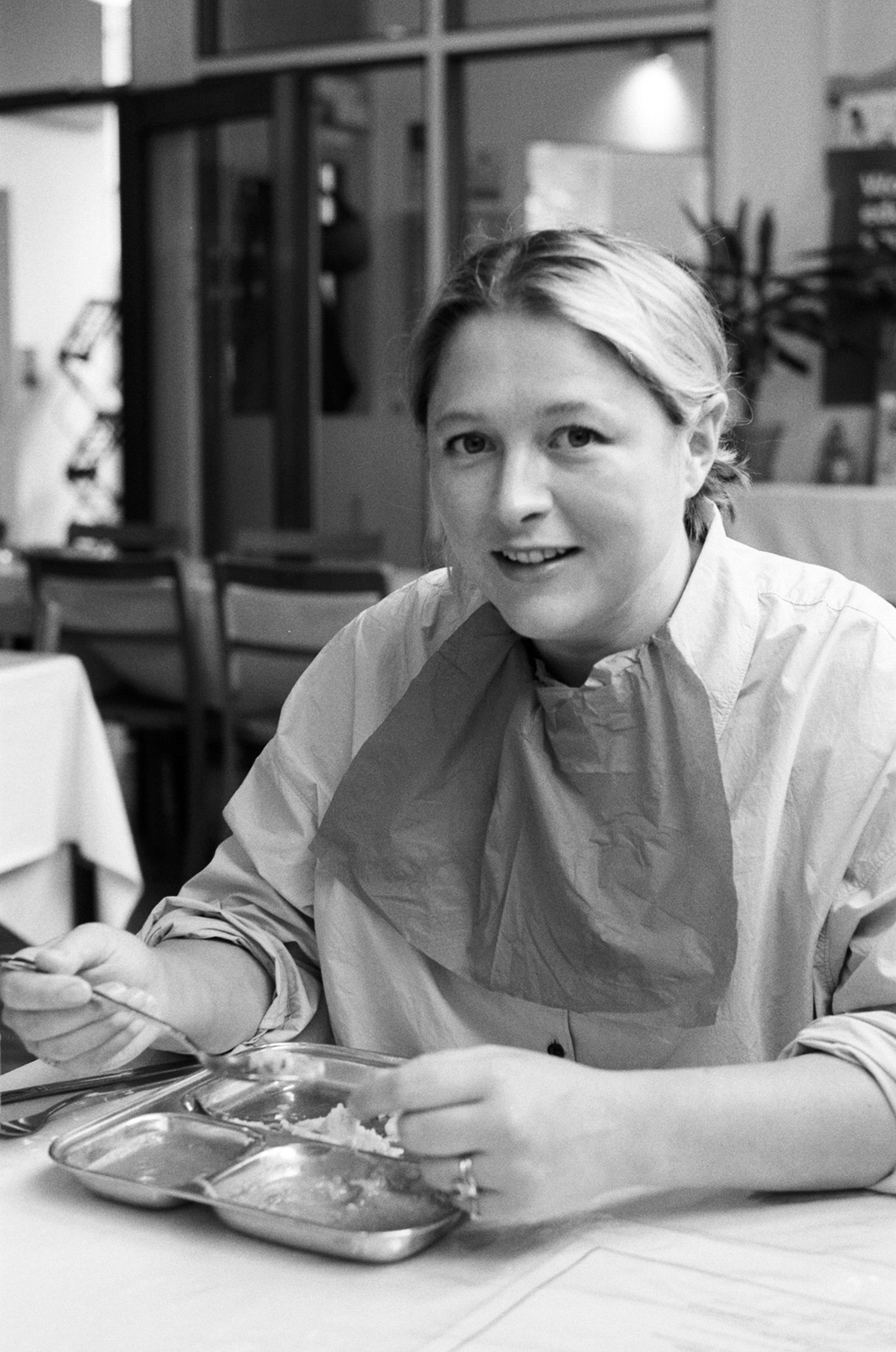
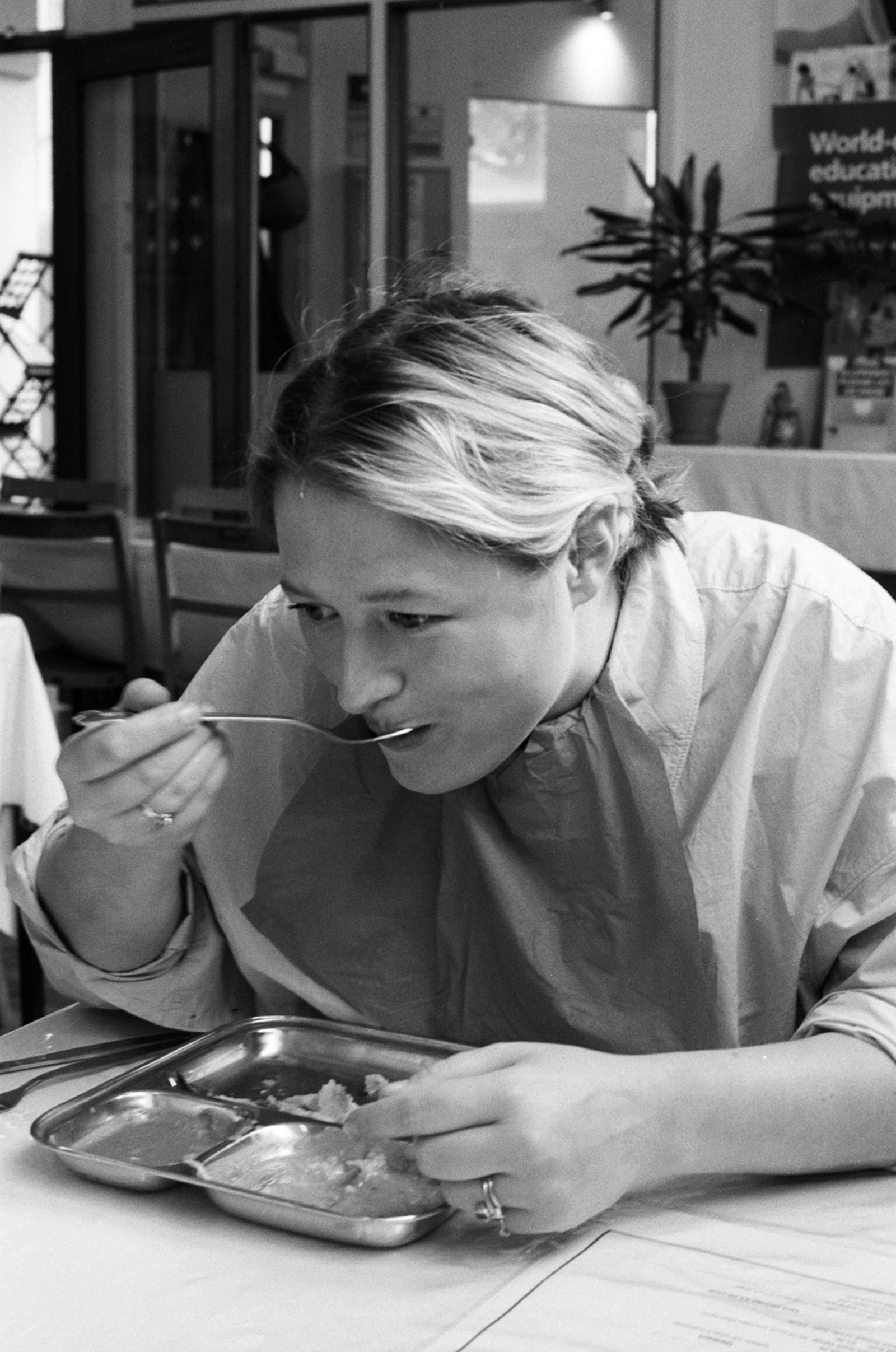
Violet Conroy: The theme for this issue of Worms is ‘the elements,’ so earth, water, fire and air. I’d like to start by asking you about the title of your book, Small Fires. How did you land on that?
Rebecca May Johnson: I was quite inspired by a poem by the poet and translator Sophie Collins. I’ll read it out:
The village is always on fire.
Men stay away from the kitchens,
take up in outhouses with concrete floors,
while the women – soot in their hair –
initiate the flames into their small routines
She has flames and small routines. Fire is a dangerous and powerful energy source and I wanted to point to the potency of the kitchen as a space. It could literally be the small flame of a gas hob. I then wanted to put those small gas hob flames on the scale of epic, to think about the collective power of all the different people who are cooking, often women, but not exclusively women. I wanted to think about the kitchen as a site of power, a site of knowledge, a site of epic. So the title situates it at the hob, but also there’s an ambiguity to it. Phrases like “don’t play with fire“ indicate the potential danger of that space as well as the potency of it. I wanted the revolutionary power and potential of the kitchen to be highlighted, which I think Sophie partly gets to in that poem, which I cite in my epigraph.
VC: You also write about this idea of blowing up the kitchen. What do you mean by this?
RMJ: At the beginning of the book, I spent quite a lot of time trying to dismantle various aspects of what has made the kitchen seem like a defanged, non-empowered space. So I guess my blowing up the kitchen is an intellectual blowing up of the kitchen, whether that be citing Marxist feminist Silvia Federici’s text Wages Against Housework, which she wrote with a collective in 1975, which points out how certain forms of work are not perceived as work because of the way that they’ve been framed as love within capitalism. I wanted to disentangle that knot of love and work specifically attached to the gendered work of social reproduction. I wanted to question the kitchen as a site of love and think about it as a site of work.
I also wanted to think about gender and embodiment in that space. I started out in my early twenties wanting to write about fashion because at the time, designers like Gareth Pugh were looking at ways of reconfiguring the body and moving away from essentialised ideas of gender. They were looking at androgyny and the expression of the body through clothing.
This is something I wanted to bring to thinking about how to be embodied in the kitchen because it’s a space which is absolutely laden with cliche, and very heavy with regards to gender tropes. Often people approach the kitchen with a sense of nervousness about whether it’s going to be silencing, and how they need to express themselves, whether that be via gender or other means of self-expression
I wanted to look at embodiment, the politics of labour. I also look a bit at racial politics, citing Audre Lorde and Christina Sharpe. I wanted to think about the kitchen as a space of serious knowledge, to liberate it from its small, petty domesticity and think about it on a much greater scale.
”I wanted to think about the kitchen as a space of serious knowledge, to liberate it from its small, petty domesticity and think about it on a much greater scale” – Rebecca May Johnson
VC: You mention that you were a fashion writer. How did you first embark on a career in fashion, and why did you move away
from it?
RMJ: I grew up in a rural area – I always used to buy magazines – and clothes seemed an exciting space to explore embodiment and gender. It’s also really connected to my first ever reading of Judith Butler’s Gender Trouble when I was 19, and the way that seemed to liberate the body from essentialised, gendered notions of what’s natural, which I personally found extremely useful and liberating. That’s what drew me to writing about fashion in the first place.
I moved away from it because ultimately I found that writing in a journalistic form wasn’t satisfying, but then neither was academic writing. Both of them have big formal constraints. With journalistic writing, you’re typically writing for a brief with a style and cues that that publication has. Similarly, in academia, there’s loads of rules about how you can write – style, or whether you can use yourself in the work or not.
I owe a lot to thinking about clothes and embodiment and materiality, but I didn’t like the business aspect of it as well. In the end, it all began to feel quite commercial and the politics of fashion and the labour that produces clothes ... I still like clothes, I still like looking at clothes, but I think it’s hard to write about fashion and capitalism without getting pretty depressed about it. [Laughs].
Literature is slightly outside of that. It’s not necessarily marching to the drum of trends, or being dictated by companies. The cycles of fashion are very strongly dictated by companies, but with literary writing, there’s something amazing about writing something which is not fulfilling anyone else’s brief. You can be as wild in your thinking as you want, and you can be as strange as you want. I developed my writing style by self-publishing online on blogs and newsletters, where I did all sorts of writing experiments.
VC: Speaking of the possibilities of online publishing, you work as an editor at Vittles, a London-based food and culture newsletter founded by Jonathan Nunn. Are you able to be experimental in your work there?
RMJ: Yeah. It’s very different to any other media place that I’ve worked at. We don’t have a style guide, we don’t tell writers how to write. We actively want to make space for difference. If we see people wanting to write in ways we’re unfamiliar with, we often seek to make space for that rather than saying, “That’s not for us.“ The formal range is really exciting; we do big thematic essays, poetry, short fiction, creative nonfiction, and audio pieces. We don’t have advertisers that we have to please, so that also allows us a great degree of political freedom with the kind of things that we write about. Lots of our writers are first-time food writers as well, and as a result, the writers we work with have the greatest diversity in terms of location in the world, class, and cultural background. It’s great.
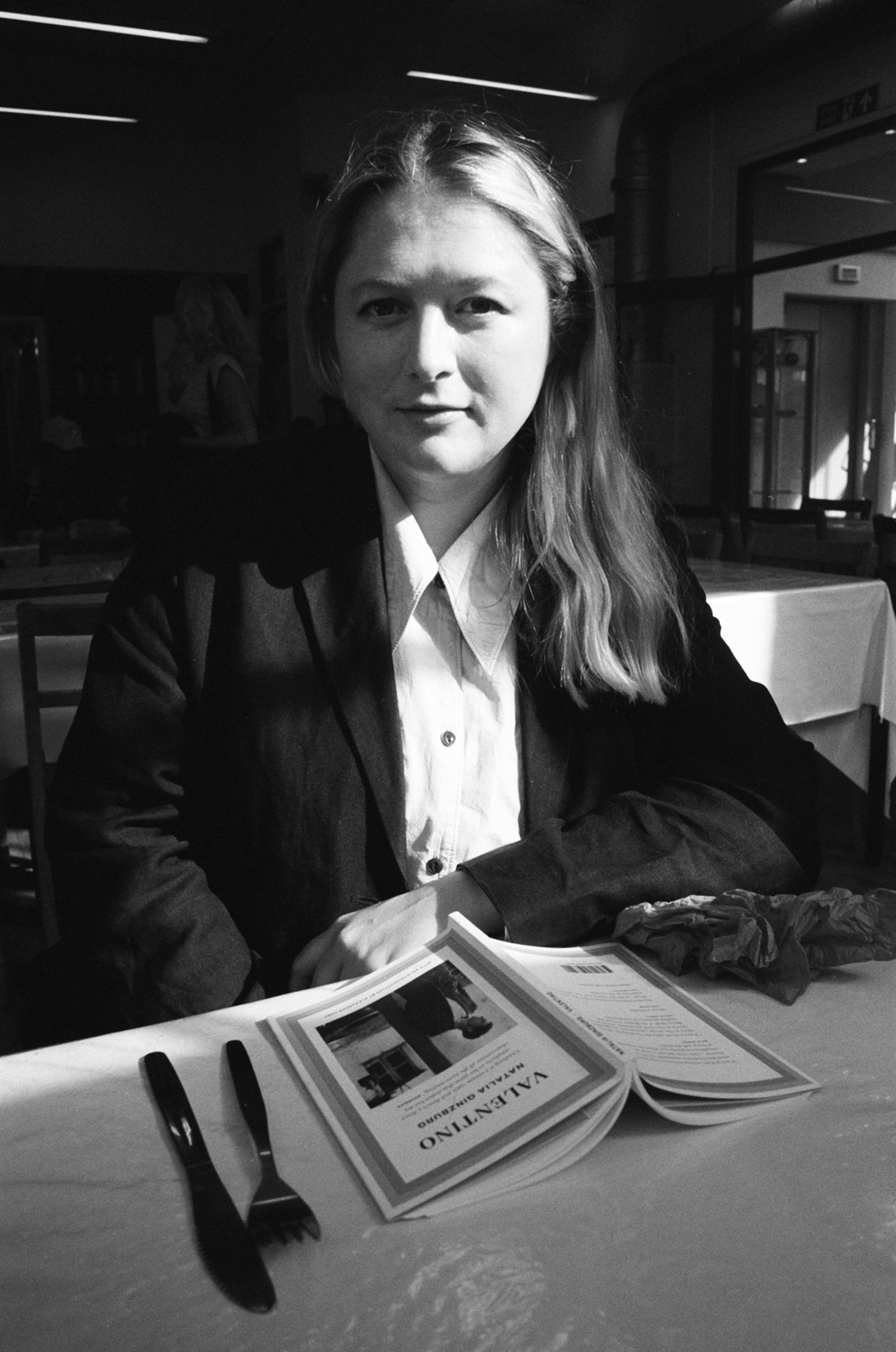
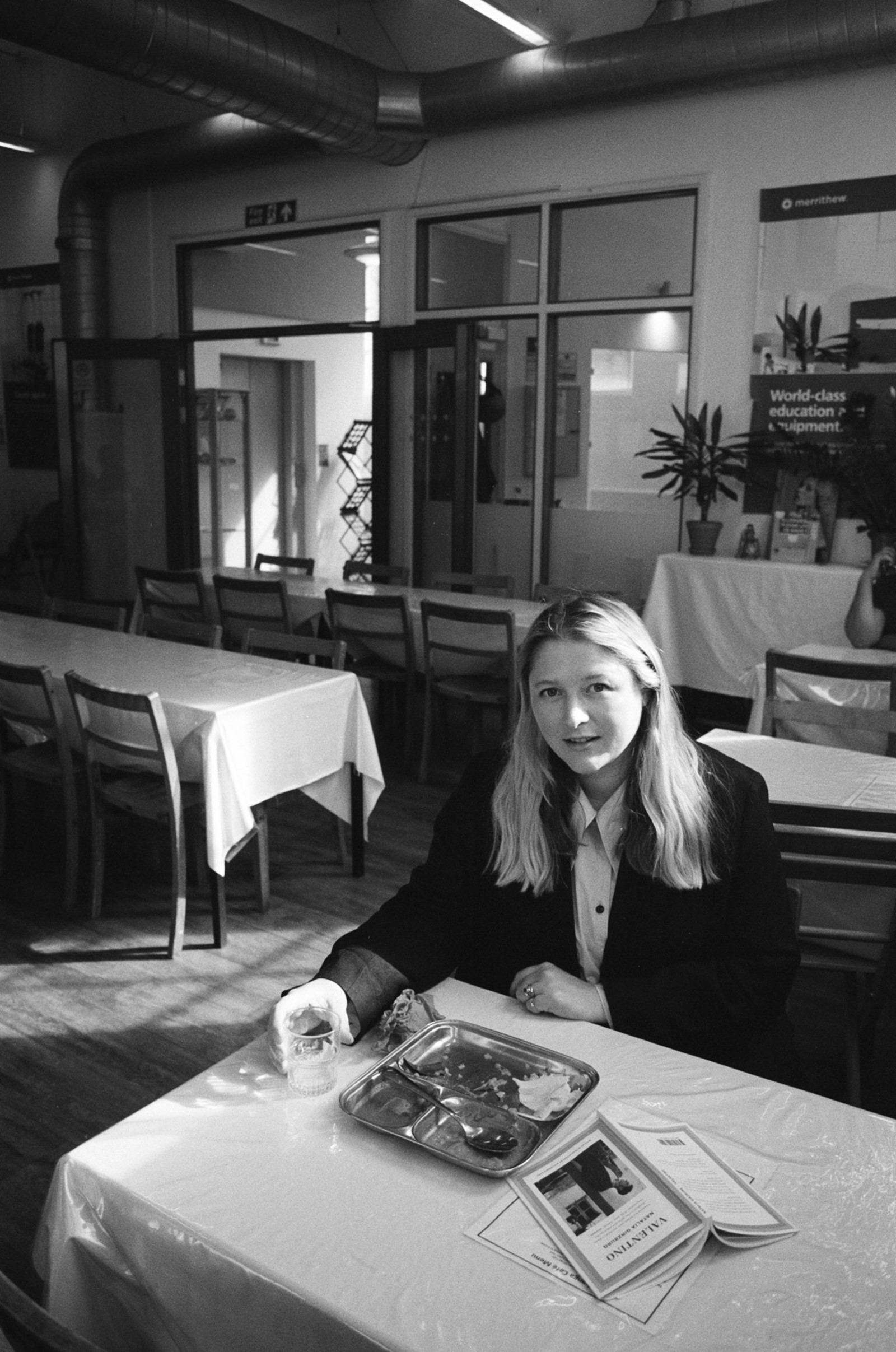
VC: How did you first decide to write a book about the art of cooking?
RMJ: The thread in the book comes from my PhD, which was about this German poet Barbara Köhler, who did a feminist rewriting of the Odyssey that was published in 2007. She positioned women’s work – the work of weaving – at the centre of her rewriting of the Odyssey. She looks back at 3,000 years of culture and rehabilitates feminine monstrous and queer figures from history and culture. Weaving is a prevailing metaphor in her doing of this.
When I was studying that, I was doing a lot of cooking – as I always have done when I’ve lived with different people in different houseshares in London – as a way of socialising. I was pretty depressed during my PhD though, I really struggled for a while with mental health. I started writing down recipes from what I was cooking as a way to almost reassure myself that I was doing anything with my time, because I was really struggling with doing my PhD. And I also realised that much of the most exciting thinking I was doing was in the kitchen.
As I was doing this – writing recipes and thinking about cooking – there was a kind of a cross-pollination with my PhD where I was like, “Why have I not been thinking of the kitchen as a space to do serious critical thinking?“ Many people who cook in domestic space have a tendency to minimise what they’re doing, and most of it goes totally undocumented. What does one learn about the world and the human condition from ten years of cooking? All the different people you encounter, when you cook the things that they teach you, their experiences, their differences that they bring to the table – what does that teach you?
Between 2014 and 2018, I was also involved with a poetry group that did a night called ‘SittingRoom’, where we hosted readings at people’s houses and had quiche. Sometimes I just read out recipes as poems. I wanted to think about the recipe as a performance text. I began listing every time I’d made [Marcella Hazan’s] tomato sauce, and it kept growing, and I realised I could use that as the basis of an epic.
It’s not particularly straightforward. Coming up with the book took ages, writing the book proposal took about three years. There’s quite a bit of chance, but really, it’s based on everything I did in the 10-15 years prior to the book coming into being.
VC: You reference Martha Rosler and Nigella Lawson, talking about the former as emblematic of criticism and the latter as emblematic of pleasure. Do you feel like your book straddles the two, as a mix of serious thought and playfulness?
RMJ: Yeah. The original subtitle for the book was ‘Pleasure and Resistance in The Kitchen’, but I felt like that was a bit dry. I tried to make an account of pleasure in the book, and of displeasure and discomfort as well. There’s such pressure on people who write books about food to be visually pleasing and pleasing in their writing, and sort of smooth and untroubling. I wanted to disturb that. Food can be lovely and wonderful, but it isn’t that exclusively. I think there’s also quite a lot of pressure on people to not write about the disgusting aspects of food. I resist that in the book when I write about being unwell and having fatigue and lying down on the sofa for days, or just eating frozen food. And refusing to be competent, refusing to perform a model of domesticity – that’s my own resistance to that aspect of it. I allowed myself to become abject to a degree, which I regularly am. [Laughs].
“There’s such pressure on people who write books about food to be visually pleasing and pleasing in their writing, and sort of smooth and untroubling. I wanted to disturb that” – Rebecca May Johnson
VC: Do you think of yourself as a food writer? I ask because, for me, the book seems to be just as much about food as it is about language and writing.
RMJ: I primarily think of myself as a writer. As you say, the book has lots of other stuff in it – it’s got gender theory, translation theory, German poetry, anti-capitalist critique. I’m very interested in people’s desire to consign anything about food to a little silo. I almost feel like that’s an attempt to limit what it can be, to keep it in the kitchen, to keep it in the private domestic space, and not allow its wider implications to take hold. I don’t really think about genre when I write. I think: what is the best way for me to express what I am trying to express? So I’m not modelling my work on food memoir, but people can call it what they want. You’re not in control of a book after you’ve written it.
VC: Who are your biggest literary influences?
RMJ: Barbara Köhler, the poet I did my PhD on. Stylistically, there’s a lot of her in my work – she’s a very playful writer. Books that had a big influence on my book include The Argonauts by Maggie Nelson; the way she mixes memoir with theory, and philosophy and poetry, I hadn’t really read that before. Audre Lorde’s book Zami: A New Spelling of My Name – the way she writes about sensuality and pleasure and food intermixed with politics is amazing. But also big up humanities education, because so much of the thinking in my book has come out of study.
Katherine Angel’s book Unmastered is amazing, it’s about sex and was a huge influence. Another critical influence is an essay by the psychoanalyst, poet and nonfiction writer Nuar Alsadir called The Craft of Writing Empathy. She writes about how when people want to write a poem or a book, they get what she refers to as New Yorker fever – they want to just write something that will go in The New Yorker. She talks about how, to be a good writer, you have to tap into the freaky thing that is you, which isn’t this pessimistic projection of what an audience might want. So I kept returning to the sentiment of that essay when I was writing the book.
Keeping the faith when you’re writing your first book, and when you’re doing something that’s unusual, is hard. Writing a book is very shaming. You’re just in the total chaos of the blank page, without someone to tell you what to do other than yourself. You have to be wrangling with yourself, and that is the hardest thing about writing a book. So I found that essay so helpful.
VC: It must be terrifying to wrangle with yourself.
RMJ: Yeah. I got a grant from the Society of Authors to help me write the book, and I spent it on therapy. [Laughs]. I was struggling to start writing after I sold them on proposal, and then the week I started therapy, I started writing. There’s a shift in the book which is also represented by my progress in therapy – towards the end I become much more loose. I wrote the second half of the book by hand as well for various reasons, one of them being a will to just accept the moment and accept whatever I was writing. Whereas with the first half of the book, some of those sentences were rewritten hundreds of times. It’s not so easy to delete and rewrite when you’re writing by hand, so you have a different kind of immediacy.
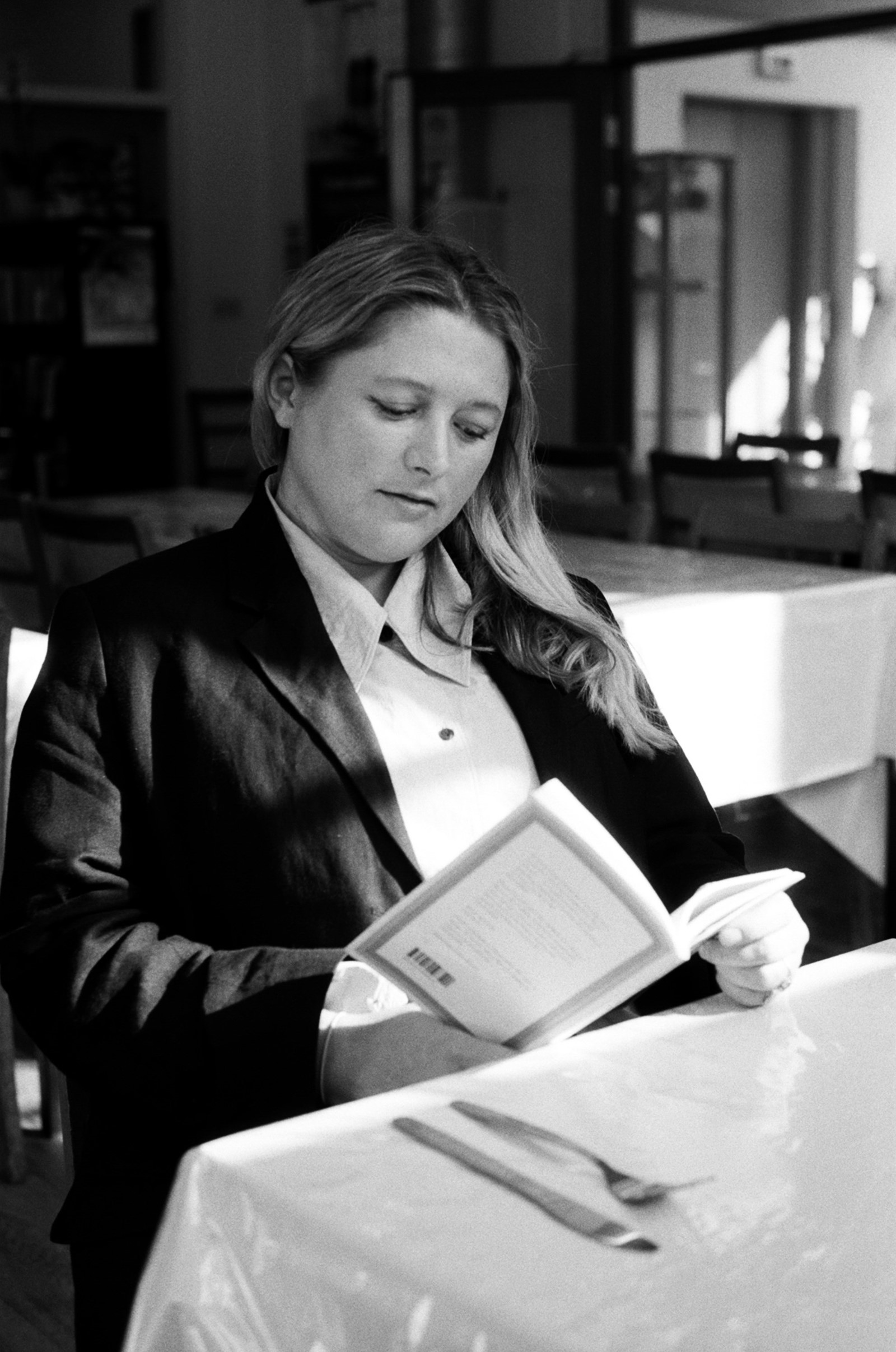
VC: You write about the fractured relationship between language and the lived, embodied world. Did writing this book help you kind of create a bridge between the two?
RMJ: I think it did in different ways. One was writing by hand, because halfway through writing my first draft, I got slightly tangled in theory and I was finding it really hard to see what was going on. That’s when I went and documented my cooking of the sausages. Writing by hand was also about accepting the gestural, embodied aspect of writing – so, what came to my hand in the moment.
VC: What are you writing next?
RMJ: I’m currently writing a book proposal for my second book. It’s more about eating rather than cooking and it’s got more public space in it. Its intentions are partly connected to an essay I wrote that went quite viral in 2019 called I Dream of Canteens, which is about thinking about how to find fragments of political utopia in different eating spaces and experiences. I’ll be working in a similar way to how I work in Small Fires, where I’ll use a mixture of memoir and theory to try and ask questions, but without it becoming a big book of answers or a didactic nonfiction book. Teaching people lessons isn’t for me, because literary pleasure is important.
’The Elements Issue’ of Worms Magazine is available to buy now. Small Fires by Rebecca May Johnson is published by Pushkin Press, and is out now.
